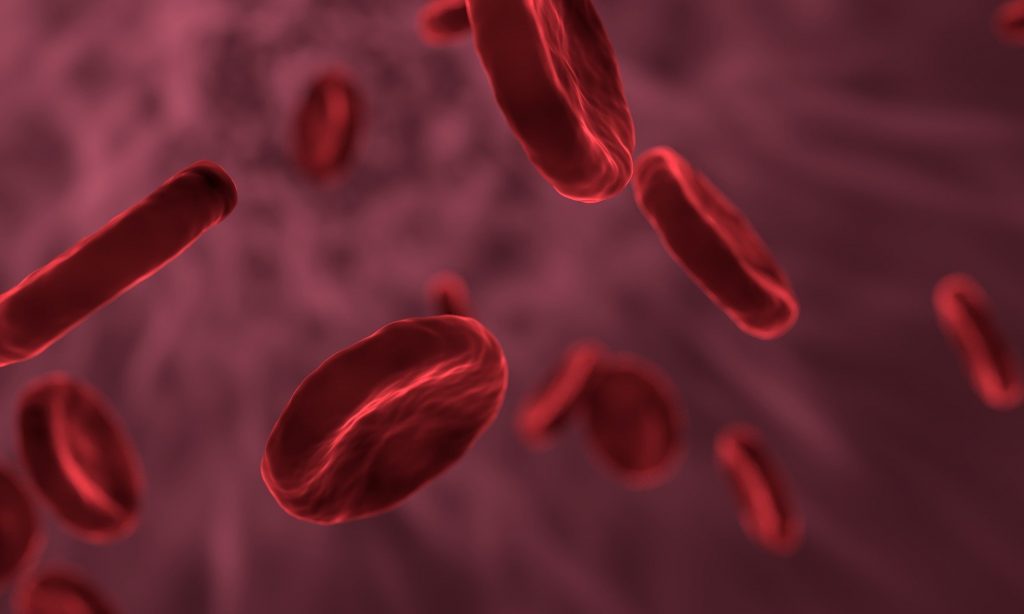
Metabolomic research has become an important part of understanding the pathogenesis of complex diseases and biomarker research. Despite the challenges of analysing complex metabolic pathways, recent research has demonstrated metabolomics as a potential diagnostic tool. Researchers in areas such as oncology, are using methods like NMR spectroscopy to identify potential diagnostic metabolomic biomarkers.
Introduction
Metabolomics refers to the identification and quantification of the small molecule metabolic products of a biological system. Metabolism is the core function of living organisms and constitutes a set of chemical reactions that enables organisms to grow, reproduce, maintain their structures and respond to environmental changes.
The field of metabolomics emerged a number of years ago and is becoming increasingly useful for precision medicine. Metabolites represent a diverse group of low-molecular weight structures including, amino acids, lipids and peptides, which can be challenging for analytical methods. However, the rapid development of analytic platforms has enabled researchers to better understand the structure and function of metabolic compounds.
Mass spectrometry and NMR spectroscopy are the two main platforms used for metabolic profiling. Both techniques are capable of standardised and high throughput measurements of large numbers of metabolites.
Metabolomic experiments are approached either untargeted or targeted. In untargeted metabolomics, the target is to detect as many metabolites as possible in a biological sample, in order to classify a phenotype based on a pattern of metabolites. In targeted metabolomics, the focus is limited to either a predetermined set of metabolites or a specific class of small molecules in order to test a hypothesis.
Untargeted metabolomic studies are important in biomarker research – metabolites are the products and intermediates of metabolic pathways, and changes at this level can precede the onset of disease symptoms. As a result, the most common application of metabolomics is for prognostic and diagnostic purposes.
Metabolomics as a potential diagnostic tool for endometrial cancer
In recent years, metabolomic studies have become useful tools in the identification of biomarkers in some cancer types.
Endometrial cancer (EC) has been a desirable target for metabolomic profiling for two main reasons: first, there is evidence to suggest that this cancer type develops and progresses through a profound metabolic dysfunction. Secondly, several metabolic risk factors have been associated with EC including obesity, and type II diabetes.
The metabolome is a key indicator of human phenotype in health and diseases like cancer – the cancer-related metabolites differ quantitatively from those resulting from non-malignant cellular events. As a result, these metabolites have the potential to serve as potential biomarkers for cancer detection.
Plasma, serum, blood and urine samples have been utilised for metabolomic studies in order to identify any potential biomarkers for EC. Direct sampling of the endometrial cavity has potential to yield the most relevant biomarkers given the close proximity to the tumour site. Unfortunately, the invasive nature of the sample collection limits their use in clinical practice.
Blood-based metabolites are more accessible, but their diagnostic potential is limited by dilution. Therefore, further studies are urgently needed to investigate other methods of yielding the best samples of metabolomic biomarkers in a less invasive way.
A number of potential blood-based biomarkers have been identified including phospholipids, hormone metabolites and amines, but up until recently, there was insufficient evidence to support the use of any of these for detection, prognosis, or disease monitoring in EC. The lack of robust validation of many biomarker candidates and limited understanding of their mechanistic links, limits further clinical studies.
More recently however, a 2021 study identified specific lipid metabolites which demonstrated good accuracy for the detection of obesity-driven endometrial cancer. The study focuses on “the potential of plasma-based metabolites to enable the early detection of endometrial cancer in a cohort of women with body mass index (BMI) ≥ 30 kg/m2. “
Using a mass spectrometry-based approach, researchers analysed the plasma samples of women with a BMI of ≥ 30 kg/m2 and endometrioid EC or histologically normal samples. Phospholipids were identified as significant biomarkers of EC and an algorithm combining the top ten performing metabolites showed 92.6% prediction accuracy for EC detection.
The team also used robust predictive models for EC detection based on artificial intelligence algorithms that were also developed and validated. The results from the study suggest that a simple blood test could enable the early detection of EC through a minimally invasive screening procedure for women with a BMI ≥ 30 kg/m2.
Untargeted metabolomics profiling can improve diagnosis of metabolic disorders in newborns
Recently, a team led by researchers at Baylor College of Medicine found that untargeted metabolomics profiling can improve the diagnostic rate for inborn errors of metabolism “by about seven-fold when compared to the traditional metabolic screening approach”.
Inborn errors of metabolism is a group of rare genetic conditions which can disrupt the normal processes the body uses to convert nutrients into energy, resulting in serious conditions. For some of the disorders in this group, some biochemical tests are not clinically available.
However, this study demonstrated that untargeted metabolomics can be used to identify a more diverse range of metabolomic compounds in the blood and screen for many more disorders.
The data supports the capability of clinical untargeted metabolomics in screening for inborn error metabolites, and it was suggested that “broader screening approaches should be considered in the initial evaluation for metabolic disorders.”
This is an important milestone for screening metabolic disorders, which have been historically difficult to diagnose through biomarkers. Not only does this enable patients to begin appropriate treatment sooner, it creates a platform for further investigating the link between metabolic dysfunction and pathogenesis for a whole range of diseases, which was not previously thought possible.
Charlotte Di Salvo, Lead Medical Writer
PharmaFeatures
Subscribe
to get our
LATEST NEWS
Related Posts

Molecular Biology & Biotechnology
Myosin’s Molecular Toggle: How Dimerization of the Globular Tail Domain Controls the Motor Function of Myo5a
Myo5a exists in either an inhibited, triangulated rest or an extended, motile activation, each conformation dictated by the interplay between the GTD and its surroundings.

Drug Discovery Biology
Unlocking GPCR Mysteries: How Surface Plasmon Resonance Fragment Screening Revolutionizes Drug Discovery for Membrane Proteins
Surface plasmon resonance has emerged as a cornerstone of fragment-based drug discovery, particularly for GPCRs.
Read More Articles
Designing Better Sugar Stoppers: Engineering Selective α-Glucosidase Inhibitors via Fragment-Based Dynamic Chemistry
One of the most pressing challenges in anti-diabetic therapy is reducing the unpleasant and often debilitating gastrointestinal side effects that accompany α-amylase inhibition.













